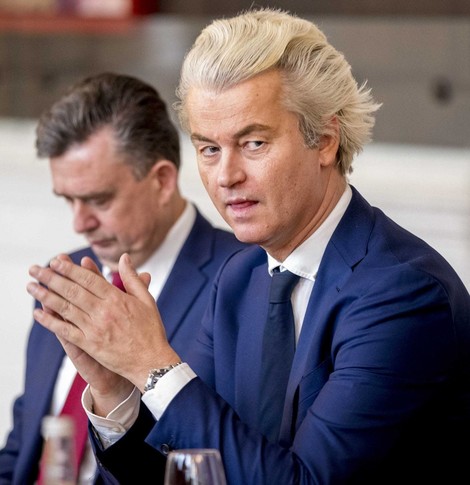Your podcast discovery platform
Curious minds select the most fascinating podcasts from around the world. Discover hand-piqd audio recommendations on your favorite topics.

piqer for: Globalization and politics
Brussels-based communications specialist, originally from Barcelona with a journalistic background. Currently working as Communications Adviser (social media, content editor & press) for a European political party. Piqs mostly about European and EU politics and the interlink between media and politics.
Did We Only Look At Dutch Elections With Populist-Coloured Glasses?
After the drama of Brexit and Trump's election in the US, media across the globe, and particularly in English-speaking countries, seem to be looking at other European elections with populist-coloured glasses. To some extent, this is the reason why Geert Wilders' populist candidacy in this year's Dutch elections drew an unusual amount of interest in foreign media. Another badly behaved man with another bad haircut.
However, the outcome of the recent Dutch elections showed that while Wilders' seats went slightly up, there has been no populist surge or massive win in the Netherlands. Instead, the centre-right prime minister's party (VVD) remains the largest in the Dutch parliament, and other progressive parties, such as D66 or Groen Links, scored significantly well. Even more, it can already be said that a great majority of citizens voted for parties that want to stay inside the European Union.
While looking at the Dutch elections with populist-coloured glasses, media missed out on a story of higher pan-European relevance: the failure of the Dutch Labour party (PvDA). In fact, the collapse of social democratic parties is a phenomenon currently affecting electorates in almost every European country.
Across Europe, disillusioned ex-left-wingers are now opting for other options, such as xenophobes who now advocate for a so-called "nationalist socialism" (e.g. Marine Le Pen in France) or social and economic liberals (e.g. the case of the Netherlands), as well as green parties (e.g. Alexander Van der Bellen in Austria). Therefore, in the end, the fall of the old or traditional European left and the story of who will take up their voters might matter more than the sensationalist rise of the new far-right.
